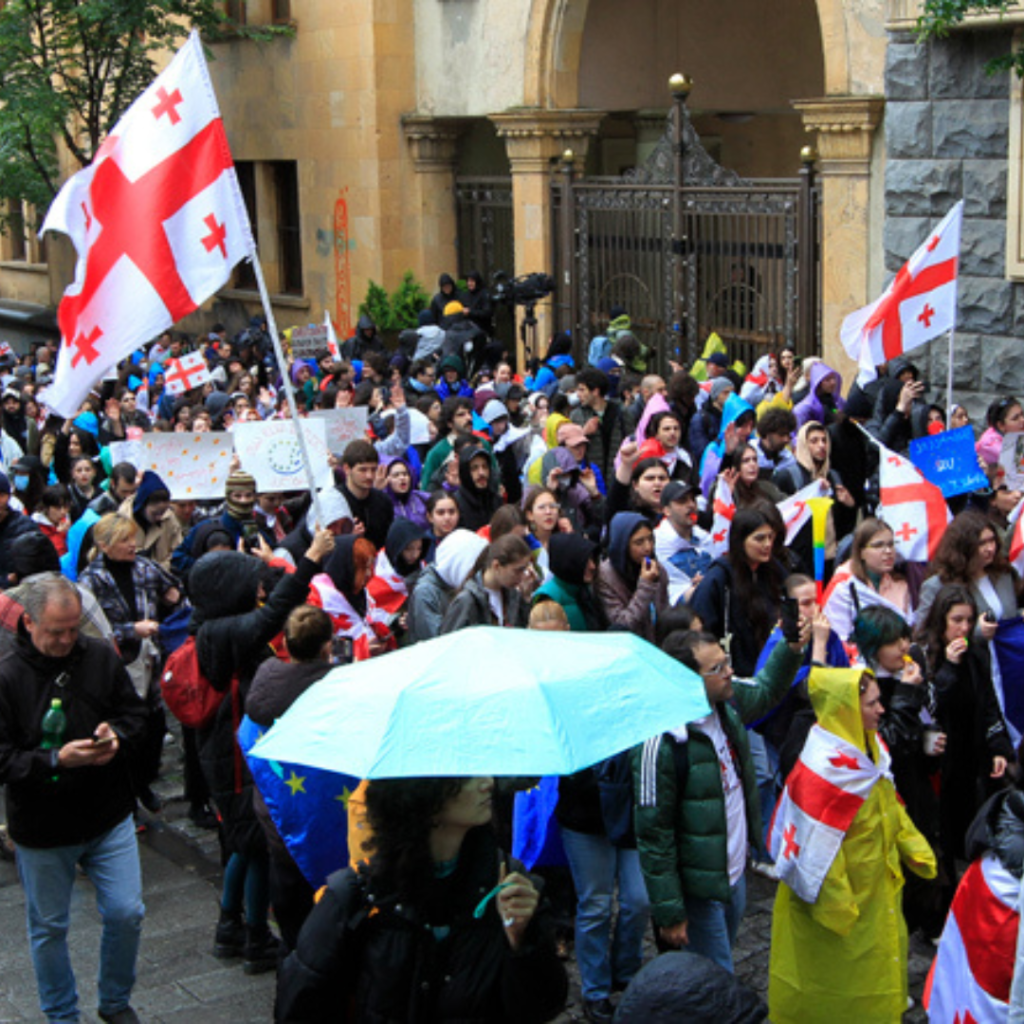Information
On Tuesday, the Georgian parliament passed a contentious bill requiring media, NGOs, and other non-profits to register as entities “pursuing the interests of a foreign power” if they receive more than 20% of their funding from abroad. This bill, approved after a third reading amidst widespread protests, has been criticized for potentially undermining domestic freedoms and jeopardizing Georgia’s aspirations to join the European Union. Critics, drawing parallels to similar laws in Russia, express concerns about the implications for democracy and transparency in Georgia. Despite this, Prime Minister Irakli Kobakhidze defends the bill as a measure to enhance transparency and accountability.
The passage of the bill sparked not only heated debates within the parliament but also significant public unrest outside, with around 2,000 protesters regularly gathering in Tbilisi. During one such demonstration, several protesters were detained by law enforcement. These protests echo concerns voiced by Western entities and Georgian citizens alike that the bill could derail Georgia’s trajectory toward EU membership. European Council President Charles Michel emphasized that adherence to democratic principles and the rule of law are non-negotiable for EU accession, warning that the adoption of this law poses a serious obstacle to Georgia’s European integration. Meanwhile, Georgian President Salome Zourabichvili has threatened to veto the law, which she criticizes as reminiscent of restrictive Russian legislation, although the parliament may still have the final say with the power to override her veto.
Source: AFP, AP, Reuters
So what
This is a sad day for the people of Georgia who have clearly made their opposition to this bill known. Though it is unlikely the passing of the bill will see an end to protests, it is also unlikely that the current government will reverse the decision. It is possible that it may change following the next election later this year, though this would require a large shift in the current political landscape.
Follow us to join the intelligence community!

